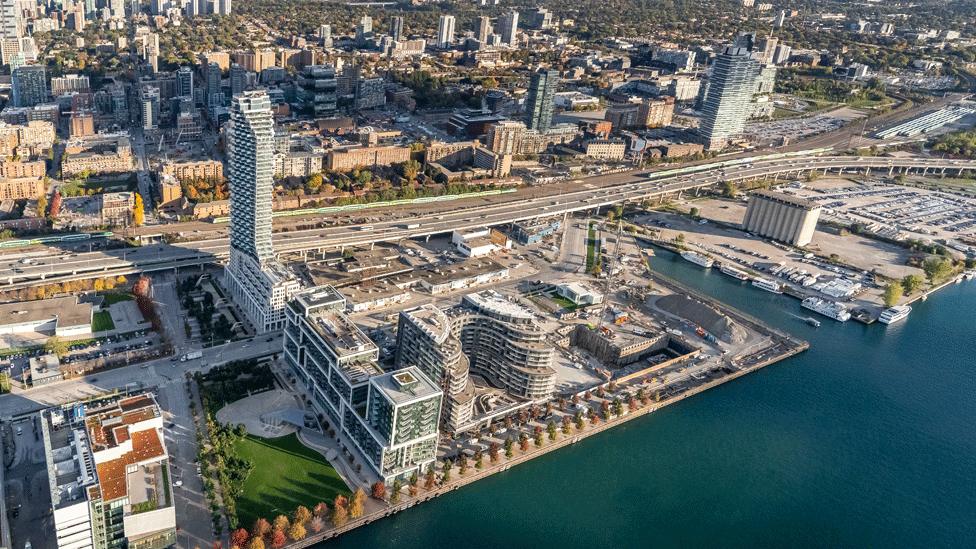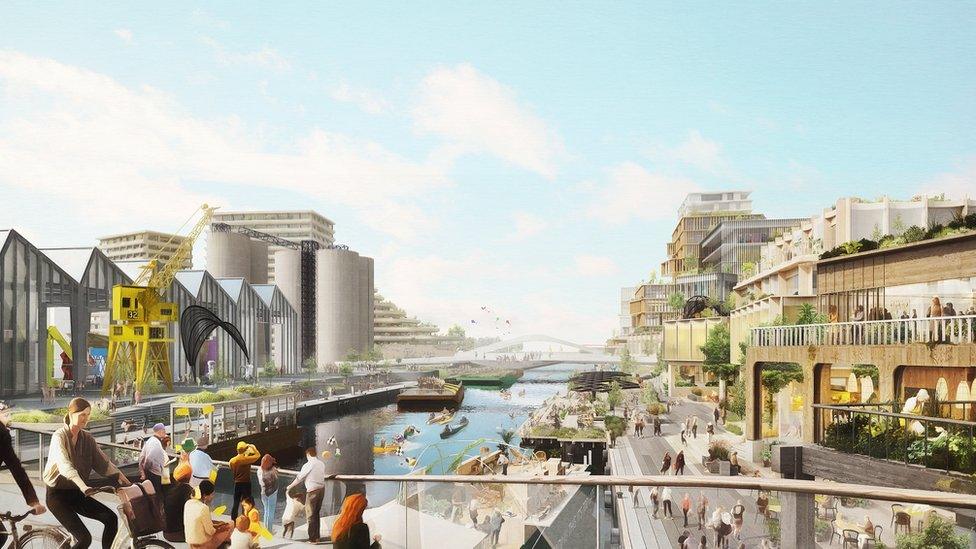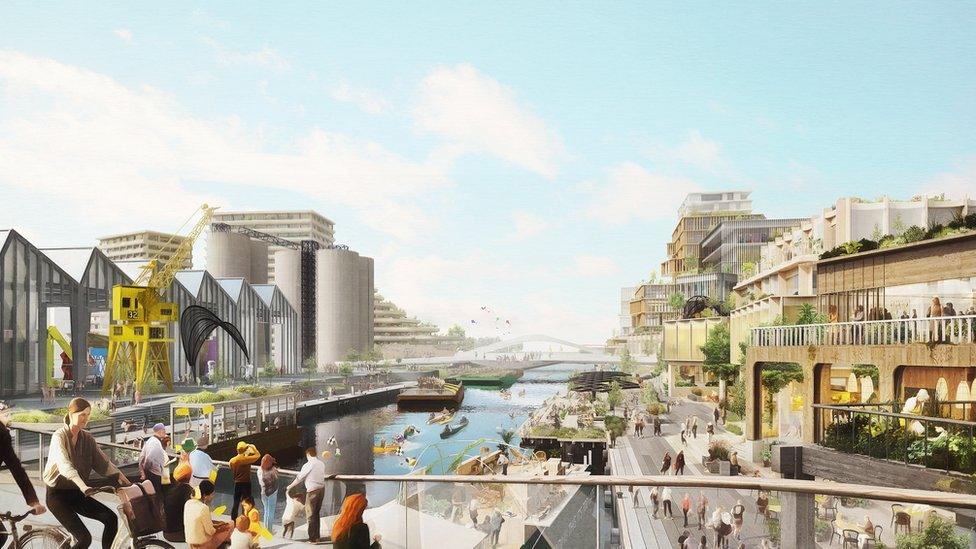Coronavirus: Google ends plans for smart city in Toronto
- Published

The former dockland and industrial area of Toronto that Sidewalk Labs planned to develop sits on the edge of Lake Ontario
Google's sister firm Sidewalk Labs has scrapped a plan to build a smart city in Canada, citing complications caused by the Covid-19 pandemic.
For several years it had pursued ambitions to build a digital-first city in Toronto "from the internet up".
Chief executive Dan Doctoroff blamed "unprecedented economic uncertainty" for abandoning the plan.
The project had proved controversial and Sidewalk Labs had already been forced to scale back its ambitions.
In a blog post, external, Mr Doctoroff said: "As unprecedented economic uncertainty has set in around the world, and in the Toronto real estate market, it has become too difficult to make the 12-acre project financially viable without sacrificing core parts of the plan we had developed together with Waterfront Toronto to build a truly inclusive, sustainable community.
"I believe the ideas we have developed over the last two-and-a-half years will represent a meaningful contribution to the work of tackling big urban problems, particularly in the areas of affordability and sustainability."
The vision was to have a city full of technology, from autonomous cars to innovative ways of collecting rubbish, and hundreds of sensors collecting data on air quality and the movements of people. Buildings would be sustainable and built in radical new ways, and cycle lanes would be heated.
But some questioned how Sidewalk Labs had won the contract. When it emerged that it planned to develop a much larger site than originally stated, a lobby group of citizens opposing the plans emerged, asking why they would want to be "lab rats" in a digital experiment.
An independent panel was set up to scrutinise its plans and released a report suggesting some of its ideas were "tech for tech's sake", and potentially unnecessary.
Sidewalk Labs was eventually given a tentative green light to continue its plan, but it was heavily scaled back from the 190-acre site it wanted to work with to a 12-acre piece of land.
It was also told that any data it collected from its sensors would have to become a public asset.
Stephen Diamond is chairman of Waterfront Toronto, the body set up to oversee development of the site.
Reacting to Sidewalk's announcement, he said: "While this is not the outcome we had hoped for, Waterfront Toronto offers thanks and appreciation to Sidewalk Labs for its vision, effort and the many commitments that both the company and its employees have made to the future of Toronto.
"Quayside remains an excellent opportunity to explore innovative solutions to affordable housing, improved mobility, climate change and several other urban challenges that Toronto - and cities around the world - must address in order to continue to grow and succeed."
In his blog, Dan Doctoroff said the firm continued to invest in start-ups "working on everything from robotic furniture to digital electricity".
"We continue to work internally on factory-made mass timber construction that can improve housing affordability"
- Published27 February 2020

- Published25 June 2019
